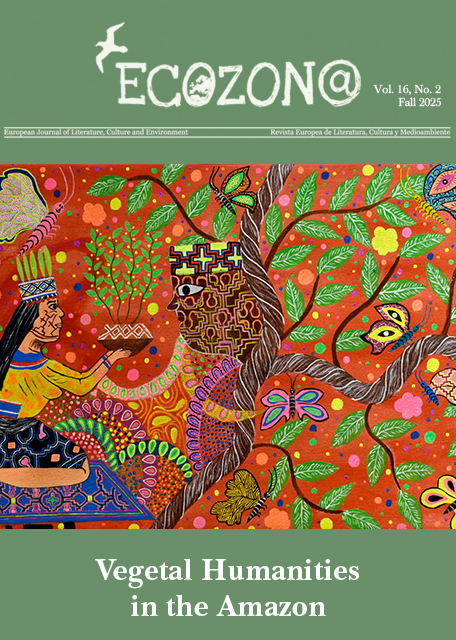Contemporary Ideas in a Traditional Mind-Set: The Nature Conservation Movement in Post War West-Germany (1945-1960)
DOI:
https://doi.org/10.37536/ECOZONA.2011.2.1.389Parole chiave:
West-Germany, Heimat, forest, post-war, nature conservationAbstract
In winter 1947 the Association for the Protection of the German Forest was founded to prevent the eradication of the forest across Germany after suffering wartime destruction, overuse and firewood logging. Especially the occupying forces faced harsh criticism from the German people for their widespread deforestation even though it seems that the Allied Powers used the wood resources quite responsibly. This article argues that the uproar by nature conservationists, politicians and “normal people” reflected a German sense of powerlessness, and revealed images and convictions of the forest as a national symbol that was supposedly endangered in post-war Germany. These post-war discussions referred back to the discourse of the 19th century, when German intellectuals declared the forest to be the myth of the German people and developed a notion of “Heimat” that saw a close connection between nation and nature. The post-war discussions involved many of those images and convictions. Nevertheless, the discussions were not only retrospective: they also reacted to the contemporary political situation and adapted their answers and solutions accordingly.
En el invierno de 1947, se fundó la Asociación para la Protección de los Bosques Alemanes para prevenir la destrucción de los bosques en Alemania después de la guerra, la sobre-explotación y la extracción de leña. Especialmente las fuerzas de ocupación fueron duramente criticadas por el pueblo alemán por la deforestación que causaban, a pesar de que, al parecer, las autoridades alidas explotaban los recursos de madera responsablemente. El presente artículo postula que las quejas de los ambientalistas, políticos y “gente de a pie“ indicaban que el pueblo alemán se sentía impotente y sacaba a relucir imágenes e ideas de los bosques en tanto símbolos nacionales supuestamente en peligro en la Alemania de la posguerra. Estas discusiones de la posguerra reflejaban los discursos del siglo XIX con que los intelectuales alemanes elevaron los bosques a la categoría de mito representativo del pueblo alemán y desarrollaron en la idea de “Heimat” [“Patria”] una íntima conexión entre nación y naturaleza. Las discusiones de la posguerra trataron de muchas de esas imágenes e ideas decimonónicas pero no se limitaron a tener de ellas una mera visión retrospectiva, pues hicieron que respondieran a la situación política del momento y aportaran soluciones de acuerdo a la nueva coyuntura.
Downloads
##submission.downloads##
Pubblicato
Fascicolo
Sezione
Licenza
Authors who publish with this journal agree to the following terms:
a) Authors retain copyright and grant the journal right of first publication with the work simultaneously licensed under a Creative Commons Attribution License that allows others to share the work with an acknowledgement of the work's authorship and initial publication in this journal (CC BY-NC for articles and CC BY-NC-ND for creative work, unless author requests otherwise.
b) Authors are able to enter into separate, additional contractual arrangements for the non-exclusive distribution of the journal's published version of the work (e.g., post it to an institutional repository or publish it in a book), with an acknowledgement of its initial publication in this journal.
c) Authors are permitted and encouraged to post their work online (e.g., in institutional repositories or on their website) prior to and during the submission process, as it can lead to productive exchanges, as well as earlier and greater citation of published work (See The Effect of Open Access).










